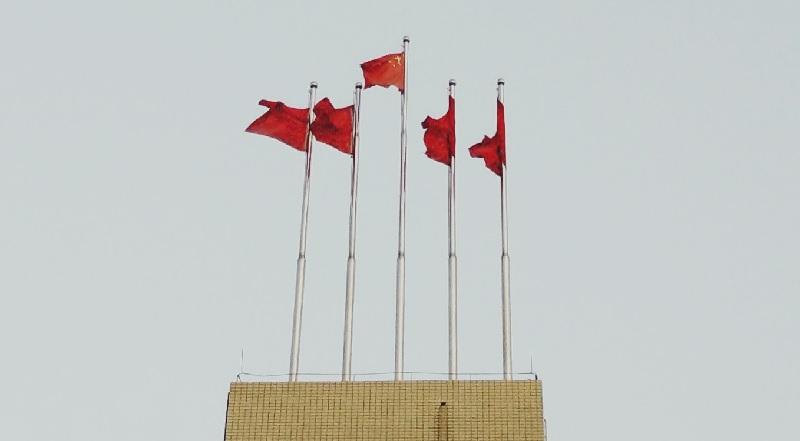
Managing relations with China is the most challenging foreign and security policy problem facing Prime Minister Scott Morrison and his re-elected government. It will demand a rigorous whole-of-government response coordinated by the prime minister’s department with the departments of foreign affairs, defence and home affairs, as well as domestic and overseas security agencies.
A systematic government effort is needed to neutralise Beijing’s relentless and multifaceted campaign to ‘Finlandise’ Australia by decoupling Canberra from its military alliance with the US, subverting our domestic institutions, and leaving us exposed to China’s efforts to impose its authoritarian hegemony on the Indo-Pacific region.
It’s hard to be optimistic that Australia has the courage and the national will to overcome this persistent long-term Chinese challenge to our sovereignty and democratic values. Australia has a long and consistent record of timidity and passivity in its relations with China. Our political, business, media and academic elites are deeply divided on the security issues posed by China. We’ve even allowed China to control strategically significant ports in northern Australia.
Australians concerned by China’s at times brutal behaviour in the world and its subversive activities in Australia are often accused by China appeasers of being paranoid Cold War relics who devalue the economic benefits of having China as our biggest trading partner and a huge financial contributor to educational institutes and political parties.
But their concerns arise from and are magnified by the nature of the Chinese political system: China is a one-party Leninist state under President Xi Jinping. It is increasingly and fiercely nationalistic, it is a dissatisfied power with a deep sense of historical grievance that it wants to avenge, and it has scant regard for human rights, the rule of law or the rules-based international order.
Australian governments, intimidated by Beijing’s floods of angry and threatening words in response to any questioning of its activities, overwhelmingly take refuge in craven postures: appeasement, silence, and the kowtow.
This timidity can’t be dismissed lightly. Our economic dependency on China is great; much of our prosperity and employment may be at stake. Moreover, Australia is at best a middle power with comparatively limited military assets, while China is a nuclear-armed giant with long-range missiles, aircraft carriers and increasing sea and air force projection, which it has dramatically advanced through the South China sea as it pursues its One Belt, One Road project to access Europe across the Indo-Pacific region.
These dilemmas are intensified by the unpredictability of the Trump administration. Our US ally is, for the moment, maintaining its freedom-of-navigation patrols in the South China Sea, with the Royal Australian Navy quietly trailing along behind. But President Donald Trump is a wildcard, and Canberra can’t dismiss the possibility of a US withdrawal and the prospect of being left largely alone in the contested region. That would be a daunting prospect.
No less disconcerting are China’s widely reported espionage activities against Australia internally. There seems little doubt that China is embarked on massive espionage operations against Australian government departments, business institutions and universities. They’re facing unceasing cyberattacks by hackers in China seeking access to Australian secrets. In addition, China is notorious internationally for stealing intellectual property.
Also no less disconcerting are Beijing’s aggressive efforts to use the approximately 1 million Australian-resident Chinese (some citizens, some not) to infiltrate and to subvert Australian political and educational elites in order to bring them closer to Chinese values by a combination of bribery and bullying, threats and incentives, backed and supported by its embassies and consulates in Australia. The issue has been canvassed in chilling detail by Professor Clive Hamilton in his excellent book Silent invasion: China’s influence in Australia.
For the Morrison government, Australia’s largely passive and puerile policy has passed its use-by date. China’s rise is proving far from peaceful. It is, rather, belligerent, single-mindedly aggressive, and ruthlessly pursued and coordinated globally. In some tentative ways, Canberra has signalled its concerns to China. It has excluded Huawei from tendering for the nation’s 5G network; it has embarked on a major long-term military build-up of new submarines, surface ships and the stealthy F-35 jet fighter, as well as improved intelligence and surveillance platforms. Morrison has subtly indicated Australia’s intention to meet China’s challenge in the South Pacific, where Beijing seeks access to small, poor and often corrupt nations likely to be seduced by its dollar diplomacy.
But bolder initiatives are also required. Here’s a rough initial guide to what now seems needed to protect Australia and to create more balanced and mutually respectful Australia–China relations.
- Work to preserve the US alliance and to encourage US power projection into the Pacific, undeterred by Trump’s professions of his ‘great relationship’ with Xi. Strengthen links and cooperation with regional democracies, including India, Japan and South Korea.
- Task Australia’s anti-cyber-espionage institutions to respond in kind to Chinese hacking until Beijing stops attacking Australia.
- Task domestic and foreign security organisations to monitor Chinese penetration of Australian political, commercial, academic and social institutions.
- Actively prosecute acts of espionage committed in Australia by residents found to be acting as covert agents for foreign powers.
- Pursue new markets for coal, iron ore, tourism and education products to reduce the economic dependence that gives China its leverage over Australia.
- Actively dissuade Australian political, academic and media leaders from accepting financially alluring Chinese benefits that compromise their integrity.
- Maintain and build international and regional diplomatic pressure to preserve the international rules-based order, human rights and the rule of law.
- Don’t allow China to penetrate the research work of Australian universities in areas of potential national security significance. Close down Confucius Institutes in Australian universities.